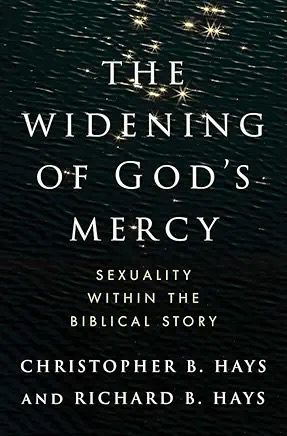PART THREE: OT Teaching on Sexual Matters
Chris’s presentation of the relevant OT evidence is well written and addresses an audience of clergy and laity. It is not meant to be a scholarly monograph, but it is to be taken seriously as written by two seasoned scholars who have read the academic discussion and reflected deeply on the relevant matter.
His treatment of Ezekiel 20.25-26 is another example of his suggestion that God changed his mind. Chris thinks this text suggests that God advocates his people offering child sacrifice, whereas most OT texts strongly oppose that practice. Let’s look carefully at what the Hebrew text actually says. In the first place it is clear enough this is a judgment oracle from God. Here is what it says because of God’s people being disobedient: “I gave them statutes that were not good and ordinances by which they could not live. I defiled them through their very gifts in their offering up all their first born, in order that I might horrify them, so that they might know that I am the Lord.” God says in this very saying that the statutes and ordinances did not reflect His good will. Then there is a statement of how God defiled them through their offering up all of their first born. Notice what it does not say. It does not say God commanded them to offer up their children in sacrifice. It says the recalcitrant Israelites were offering up their children to God, like we know some also did to Molech. In this regard this text differs from God’s testing of Abraham by commanding him to offer up Isaac. What it does say is that God defiled them through their very gifts, in other words God sees such action as defiling and horrifying—but he wants his people to have the same sense of revulsion as he himself has in regard to such actions.
Here is what two Jewish interpreters say about this difficult text. David Altschuler says, “The Israelites were forced to submit to oppressive laws and statutes in exile.” David Kimchi says, “The Israelites were removed from God because of their sacrifices of firstborn sons to Molech.” Clearly this is a difficult text, but considering that it is part of a judgment oracle, in which God makes clear this is not his desire or good will for children to be sacrificed, and the text does not say he ordered the Israelites to do this, it only says they were doing it, we should not take this text as clear proof God changes his mind.
The discussion of the war passages in the OT and of the so-called lex talionis are again said to be examples of God changing His mind. What is never mentioned is that God is dealing with fallen and sinful people. What is never mentioned is that the lex talionis was intended to limit, not license, revenge taking which was already happening. Properly interpreted in context, this command meant ‘only an eye for an eye, only a hand for a hand, only a life for a life’. As we will see in the discussion of Jesus’ teaching on what Moses says about divorce, there is a hermeneutical key given by Jesus when reading such OT laws, namely, they were given due to Israel’s hardness of heart, to limit not license their sins.
It is surprising that there is no meaningful discussion of human fallenness and sin in these chapters, even though the Genesis story warns us about what’s coming. Remember one of the curses on Eve was, ‘your desire will be for your husband and he will lord it over you’ (Gen. 3.16). In other words, to love and to cherish will degenerate into ‘to desire and to dominate’. This was the beginning of patriarchy which plays itself out in living color in the rest of the Bible. Patriarchy, like slavery, was a result of human sin and human fallenness, and this downward slide began with Adam and Eve. No wonder Paul later say that Christ was born under the Mosaic Law (which was given to limit sin) to redeem God’s people out from under a law they could not fully keep as fallen sinful people (Galatians 4).
There is also no discussion here of Michael Heiser’s remarkable study, The Unseen Realm (Lexham Press, 2015) in which he forcefully argues that the ‘harem’ or holy war idea was meant to be an attempt to eliminate the Nephilim and their offspring who come on the scene originally due to sexual mixing of humans and fallen angels (Genesis 6). In short it was not about genocide perpetrated against all non-Jews in the land, it was dealing with the problem that originally led to the flood in the first place. In short, there are various ways one can interpret the narrative in Joshua.
On the other hand, Chris is right that from as early as the story of Abraham, it is said to be God’s intent to bless all the families and nations of the earth, indeed, to have his chosen people be a light to the Gentiles as the idea was later called. This theme can be traced from Abraham right through the historical books and the prophets. This is all the more reason to take seriously and look carefully at what Michael Heiser says in The Unseen Realm.
Something needs to be said here about the dialogical passages in the OT, including in the prophets like Amos, some of which are in the Pentateuch, and some of which are in the prophets as discussed in Chapter 6 of the Hays’ book (see e.g. Amos 7.2). In some of these discussions a prophet or a patriarch is often depicted as pleading for mercy or leniency on God’s people when God could rightly judge them. And in the end God shows mercy or relents. But the question that should have been asked about all such passages is, did God not know in advance where this conversion was going? Did He not know where Amos’ heart was? Did He not really know these other persons depicted as negotiating with God?
Surely the answer is, since God is all knowing He did know where the conversation was going. He did know what was on the heart of his patriarch or prophet and had already resolved to have mercy. He didn’t change his mind, but he dialogued with an Abraham or an Amos so they would better understand God’s will and be made to feel they were a part of the process of participating in what was God’s will all along. In each of these cases it was to have mercy. In other words, Exod. 34.6 was and is always true about God. God doesn’t have to change his mind to be: ‘Yahweh, Yahweh – A God who is merciful and gracious, slow to anger, and abounding in steadfast love and faithfulness…”












 English (US) ·
English (US) ·